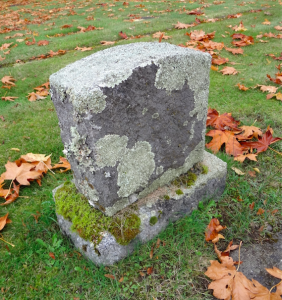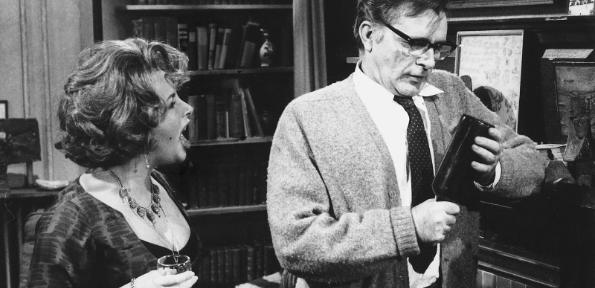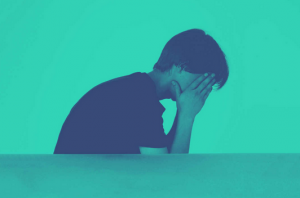
My father, who was absent throughout most of my life, was a difficult and destructive man, and I was probably better off without him in my life for the most part. Still, like most neglected children whose parents ignore them, or don’t respond to their calls or letters, or don’t show up for visits and only call when drunk, I dearly wanted his love and acceptance. I wanted proof from him that I was worthy of love and support, and I did everything I could to entice him to visit me and help me feel that I mattered to him. Yesterday I learned through his own writing that what I feared most was true: I didn’t really matter to him. He didn’t miss me. He told lies about me and sullied my character in describing me to others so that he could justify his lack of concern for me to himself.
My father could be an awful person.
Although he died over two decades ago, I had never gone through the last small box of his papers until yesterday. I thought all that I had left unread were some newspaper clippings and some of his medical records—he had serious health problems throughout his short life for which I had always had great sympathy. I had often used the obvious pain of his disabilities as an explanation for why he self-medicated so frequently with alcohol and drugs. I thought it explained his withdrawn and angry personality. Yesterday I decided I would sort through these last few papers as part of the winnowing I’m doing of all my books, papers and other long-stored bits of memorabilia—why keep duplicate medical records and clippings, I figured? Sadly, among the medical chart notes I found a copy of a letter that I don’t think my father would ever have wanted me to see—at least, I hope he wouldn’t.
In the letter I found, my father wrote of his relationship with me to one of his doctors. He painted a distorted portrait of me, softened the truth about himself, and betrayed a coldness toward me and made ugly and wrongheaded assumptions about my relationships and behaviors that would chill the heart of any child.
Throughout my childhood I tried to prove myself worthy of his love and attention through letters, presents, cards, visits and earnest efforts to make him want to see me. I tried to be clever and witty, which he valued more highly than anything, but that inspired him to tease me about my erudition in insulting ways. He said he believed in thinking independently, but when I held an opinion that he didn’t share, he made mean assumptions about me and decided I was no longer worthy of his concern. When I finally allowed myself to show him five minutes of frustration and anger when I was 21, he turned his back on me and walked away while we were talking, then refused to see, talk to or write to me for four years. I found out later that he even refused to read the film reviews and humor pieces I wrote for Bay Area newspapers during that time. He would not take my calls nor see me when I went to his home to try to talk with him. He lied about me to his friends. And now, all these years later, I had to come upon these lies in written form, and see proof of his disdain for my efforts to contact him and to find ways for us to reconcile.
My father was abusive to the people to whom he owed the most in the world, and his volatility and arrogance caused him to behave in an ugly fashion to many lovely human beings. Though he was usually negligent rather than abusive toward me, finding his cold, self-serving and misanthropic thoughts in written form felt like a hard kick to the stomach. His letters of later years showed his depressive, self-absorbed, self-victimizing thoughts deepening and his beliefs about me becoming even more skewed and unreal. I know there was a large amount of mental illness involved in his warped views about our relationship (and indeed about ALL his relationships with family members and former partners, several of whom he physically battered).
I hope that the ugly letter that I found yesterday isn’t a true indication of his feelings for me in the long term. But since he left this horrible letter among his papers, all I have proof of now is that he was willing to harden his heart against me no matter how much love, kindness and openness I offered to him. All I can say with certainty is that he refused to show love, support or kindness to his only child, realized that about himself, and still didn’t think that my health or happiness mattered enough for him to send me a postcard or make a call for months, sometimes two years, sometimes four years at a time.
I understand now that his deadness of heart toward me wasn’t because I was unworthy of love, but as a child I felt that his love was entirely conditional. It had to be earned over and over. No matter how many songs I sang or drawings I made or letters I wrote to woo him, I would always be found wanting. I now have proof that my own parent thought me so unimportant that he felt moved to write a pompous letter to a doctor he hardly knew about his lack of concern over the four-year estrangement he imposed on me. In his letter, he showed no remorse, only surprise at his lack of feeling over having abandoned our relationship. I imagined during that time and during the decades since that he was at least suffering from our estrangement, as I was, that he was missing me as I missed him, that he thought of me and loved me, as I loved him. Sadly, it appears I meant very little to him for years at a time, perhaps for all time.
I have tried to piece together his mental lapses, his violent temper, his substance abuse and attacks on all the important women in his life. I see that he was mentally ill. All signs point to his having a classic case of borderline personality disorder. But when those with mental illness write of their ugly thoughts with such dispassionate lucidity that their pathological heartlessness is described with the emotionlessness and precision of a mathematical formula, it curdles the blood. That man was my daddy. I was his only child. How could I mean so little to him?
Sickened as I was to read how thoroughly abandoned I had been, the knowledge also frees me from trying to find something worthy and lovable in this man who caused me almost nothing but pain. For over 20 years I have taken comfort in learning of his kindnesses to strangers toward the end of his life, and of his willingness to spend what little he had to feed and clothe poor people who lived in the sad building in which he lived. He owed thousands of dollars to his brother, sister and ex-wives, none of them wealthy people, but he spent the few dollars he had to help those who had less than he did. I thought of his self-loathing and his desire to redeem himself by doing good to those who were worse off than he because he felt himself too debased to ask forgiveness from those whose lives he’d permanently scarred. But after reading about his willingness to sneer at me and at others in my family who sacrificed for him repeatedly, I think perhaps I gave him too much credit for the size of his irregularly beating heart. The pacemaker that kept him going for years was actually standing in for a heart that was more shriveled and more frigid than I ever knew.
I felt sympathy and love for him for so many years, and even if it was misplaced, it helped me to imagine and suffer when I thought of similar pain endured by others who were better people than my father. My compassion for my father’s miseries helped me to care more for others. But to feel more pain on his behalf now that I know how heartless he truly was would only be to harm myself. I will continue to keep my heart open to the sufferings of others and to show them compassion when they fail and make mistakes and inadvertently harm people. We all fall short, and we all deserve mercy. But it is no longer my job to elevate the father who repeatedly and sometimes violently dishonored our family, the father who brought shame and suffering and self-doubt to those in his orbit.
If you have among your possessions letters or diaries in which you or others share thoughts and feelings that would devastate those who come after you and find your words in years to come, please consider carefully whether you really want those words to be found and read by others, even if you are angry with them now. Words can reverberate through future decades and color others’ thoughts of you and beliefs about themselves for the rest of their lives. Those thoughtless words, shared in a moment of spite or weakness or frustration, can last forever and do great harm. Don’t let them poison the lives of others. I can never unsee the horrible words my father wrote about his relationship with me. And while I am strong enough after all these years to recognize that his abandonment and betrayal say ugly things about him and not about me, having to see his illness and carelessness in black and white afresh after all these years is sickening.
Please, if you have writings or other objects that would bring your loved ones great pain after you are gone, consider getting rid of them now, while you can. Finding such things among a dead loved one’s possessions can cause lifelong heartache and taint memories forever. Careless words can echo for lifetimes.




